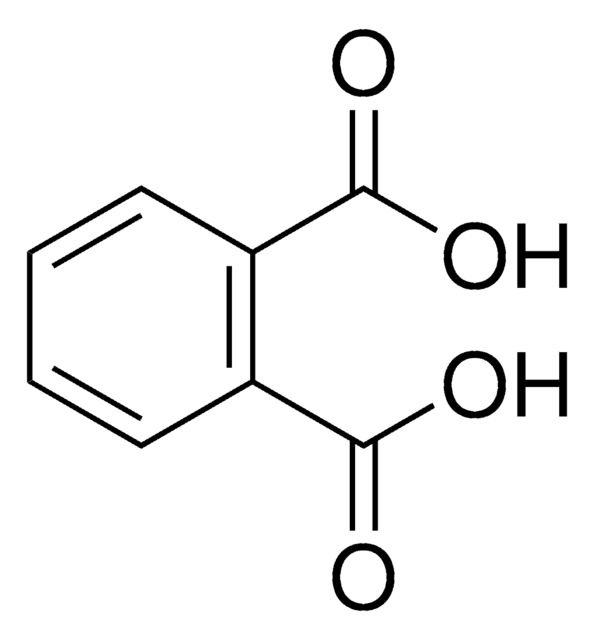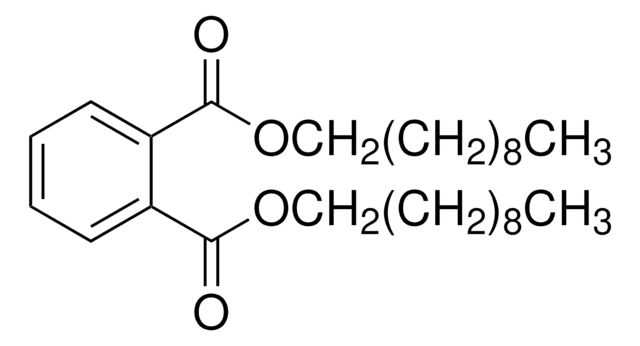41320
Dimethyl phthalate
PESTANAL®, analytical standard
Synonym(s):
DMP
About This Item
Recommended Products
grade
analytical standard
Quality Level
product line
PESTANAL®
Assay
≥99.5% (GC)
autoignition temp.
1033 °F
shelf life
limited shelf life, expiry date on the label
technique(s)
HPLC: suitable
gas chromatography (GC): suitable
refractive index
n20/D 1.515 (lit.)
n20/D 1.516
bp
282 °C (lit.)
mp
2 °C (lit.)
density
1.19 g/mL at 25 °C (lit.)
application(s)
agriculture
cleaning products
cosmetics
environmental
food and beverages
personal care
format
neat
SMILES string
COC(=O)c1ccccc1C(=O)OC
InChI
1S/C10H10O4/c1-13-9(11)7-5-3-4-6-8(7)10(12)14-2/h3-6H,1-2H3
InChI key
NIQCNGHVCWTJSM-UHFFFAOYSA-N
Looking for similar products? Visit Product Comparison Guide
General description
Application
Other Notes
The collision cross section (CCS) measurement was provided by Waters Corporation, using the SYNAPT XS mass spectrometer.
For a description and overview of how ion mobility enables the measurement of the CCS of an ion visit ims.waters.com.
Further information on the SYNAPT XS mass spectrometer can be found on the IMS microsite and product webpage.
TWCCS measurements are expected to be within 2% of this reference value.
P/N 41320 is part of the Waters Extractables & Leachables UNIFI scientific library which can be downloaded from Waters Marketplace.
Legal Information
related product
Storage Class Code
10 - Combustible liquids
WGK
WGK 1
Flash Point(F)
294.8 °F - closed cup
Flash Point(C)
146.0 °C - closed cup
Personal Protective Equipment
Choose from one of the most recent versions:
Already Own This Product?
Find documentation for the products that you have recently purchased in the Document Library.
Customers Also Viewed
Our team of scientists has experience in all areas of research including Life Science, Material Science, Chemical Synthesis, Chromatography, Analytical and many others.
Contact Technical Service







